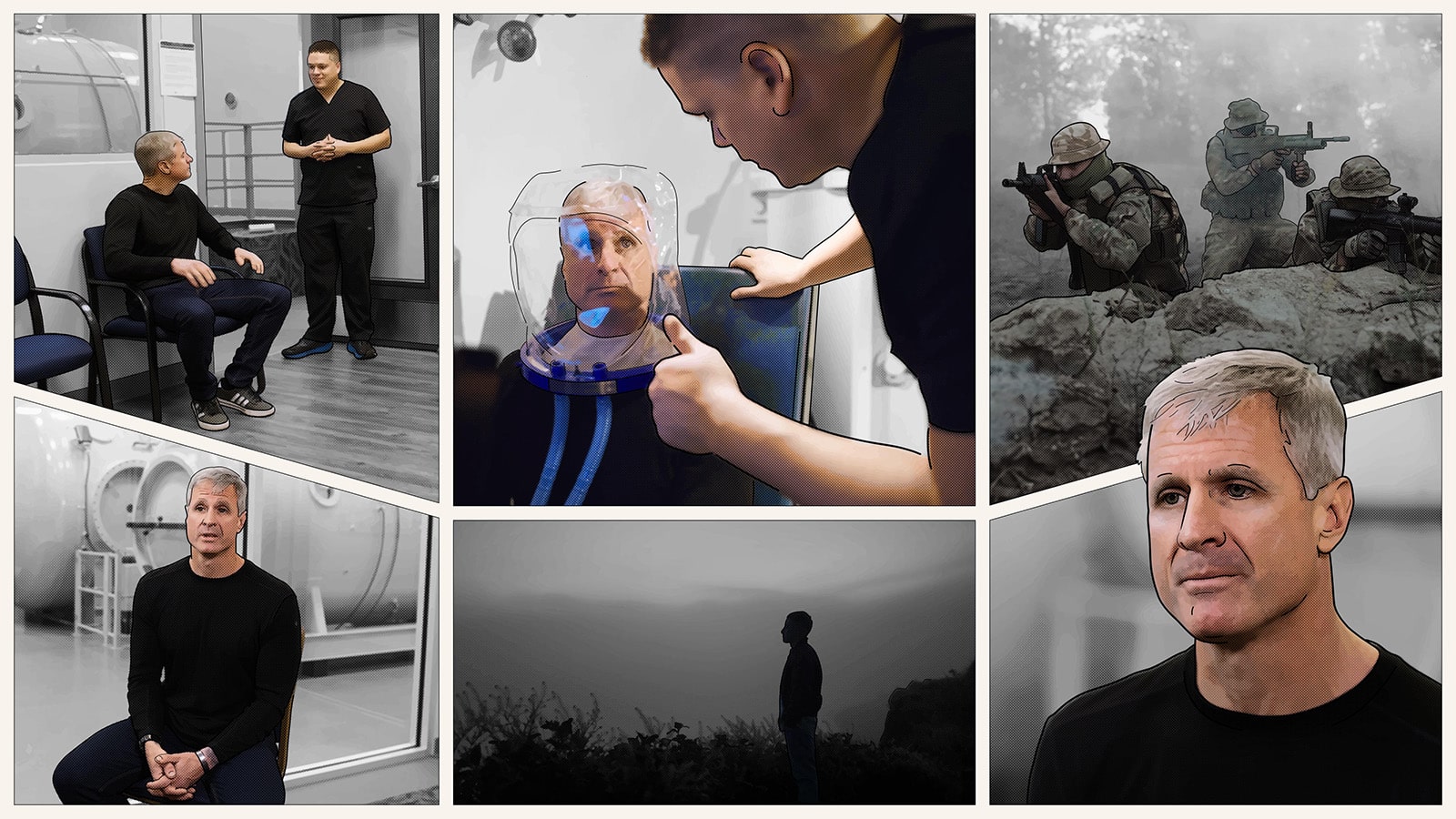Transforming Life and Health with Hyperbaric Oxygen Therapy
Tim Coderre
Corporal USMC, Retired.
Sergeant ARNG, Retired.

Tim Coderre served in the United States Marine Corps and the Army National Guard, holding the ranks of Corporal and Sergeant, respectively. His military career included deployments to the Mediterranean, Panama, and Iraq, exposing him to numerous combat operations, IEDs, and environmental hazards like burn pits. These experiences led to multiple traumatic brain injuries (TBIs) and other physical and psychological challenges.
Emotional Stability and Anxiety Reduction:
Tim noticed a substantial decrease in anxiety and irritability, allowing him to manage his emotions better and improving his interactions with his family. The therapy helped him reduce reliance on alcohol as a coping mechanism.
Cognitive Clarity and Reduced Brain Fog:
One of the most notable improvements was the reduction in brain fog. Within the first five to ten dives, Tim experienced clearer thinking and better cognitive function, enhancing his daily activities and overall quality of life.
Pain Relief and Physical Healing:
HBOT alleviated much of Tim’s joint and muscle pain, enhancing his overall physical function. Although he still experiences some pain in his neck due to structural changes, he anticipates further benefits from continued HBOT sessions, as the therapy promotes increased circulation and nutrient delivery to affected areas.
Improved Sleep Quality:
Tim’s sleep improved significantly, both in terms of falling asleep faster and the quality of his rest. He managed to replace alcohol with healthier sleep aids, such as white noise and relaxing videos, and experienced fewer severe headaches and reduced tinnitus.
Tim’s experience with hyperbaric oxygen therapy demonstrates the therapy’s extensive benefits, addressing both physical and psychological challenges resulting from his military service. His testimonial underscores HBOT’s potential to significantly enhance the quality of life for veterans and their families, advocating for its broader adoption in medical treatment protocols.
